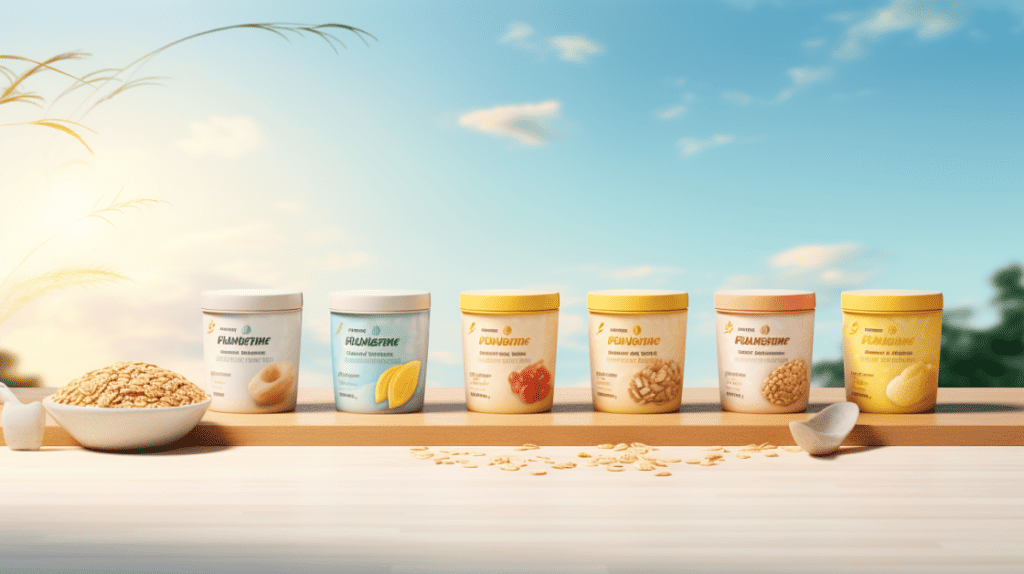
If you’re looking for a simple and delicious way to lower your cholesterol, oatmeal is a great option. Oatmeal is a whole grain that contains beta-glucan, a type of soluble fiber that has been shown to help lower cholesterol levels. But with so many oatmeal brands and varieties available, it can be hard to know which one to choose.
In this article, we’ll explore the best oatmeal brands for lowering cholesterol, as well as some tips for making the most of this heart-healthy food.
When it comes to cholesterol, it’s important to understand the role that diet plays in managing your levels. While some factors that affect cholesterol are beyond your control, such as genetics and age, there are many lifestyle changes you can make to help lower your cholesterol levels.
Eating a diet that’s rich in whole grains, fruits and vegetables, lean proteins, and healthy fats is one of the most effective ways to manage your cholesterol levels. And when it comes to whole grains, oatmeal is one of the best choices you can make.
So what makes oatmeal such a great choice for lowering cholesterol? Let’s take a closer look at the nutritional composition of oatmeal, as well as some of the other factors that make it such a heart-healthy food.
By the end of this article, you’ll have a better understanding of why oatmeal is such a great choice for managing your cholesterol levels, as well as some practical tips for incorporating it into your diet.
Key Takeaways
- Oatmeal is a whole grain that contains beta-glucan, a type of soluble fiber that has been shown to help lower cholesterol levels.
- Eating a diet that’s rich in whole grains, fruits and vegetables, lean proteins, and healthy fats is one of the most effective ways to manage your cholesterol levels.
- Oatmeal is a heart-healthy food that can help lower your cholesterol levels, and there are many ways to incorporate it into your diet.
Understanding Cholesterol
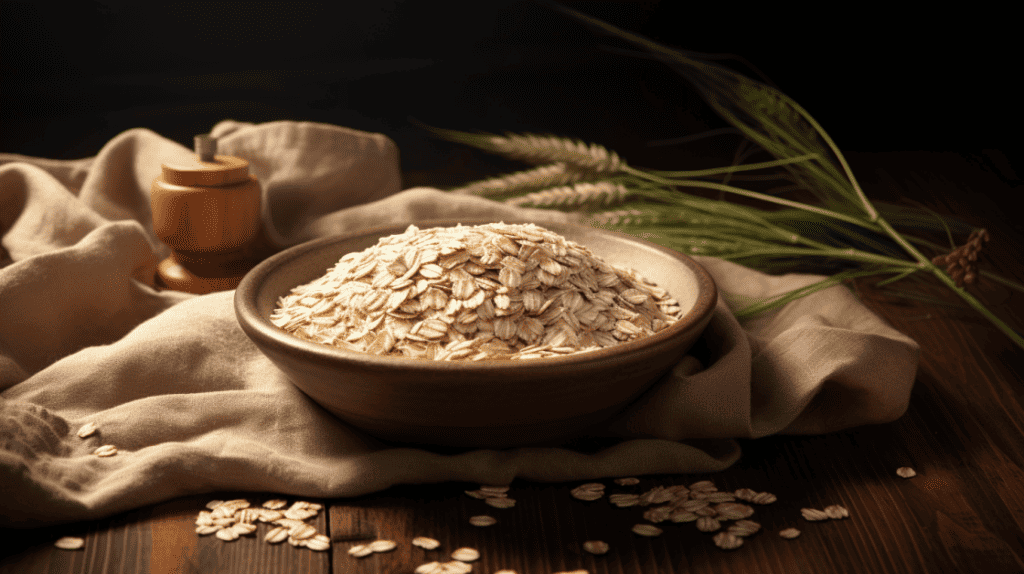
Cholesterol is a waxy substance that is found in the blood. It is essential for the body to function properly, but too much of it can be harmful. High levels of cholesterol can lead to health problems such as heart disease and stroke.
There are two types of cholesterol: LDL (low-density lipoprotein) and HDL (high-density lipoprotein). LDL cholesterol is often referred to as “bad” cholesterol because it can build up in the walls of the arteries, leading to blockages. HDL cholesterol is often referred to as “good” cholesterol because it helps to remove LDL cholesterol from the bloodstream.
Triglycerides are another type of fat found in the blood. High levels of triglycerides can also contribute to the development of heart disease.
One way to lower LDL cholesterol and triglycerides is to increase your intake of soluble fiber. Soluble fiber can be found in foods such as oatmeal, beans, and fruits. When you eat soluble fiber, it binds to cholesterol and triglycerides in the digestive tract, preventing them from being absorbed into the bloodstream.
Oatmeal is particularly effective at lowering LDL cholesterol levels. Studies have shown that eating one bowl of oatmeal per day can lower LDL cholesterol by up to 10%. Steel-cut oats are the best type of oatmeal to eat for this purpose, as they are higher in soluble fiber than other types of oats.
In addition to eating oatmeal, there are other lifestyle changes you can make to help lower your cholesterol levels. These include exercising regularly, maintaining a healthy weight, and avoiding foods that are high in saturated and trans fats.
By making these changes, you can lower your risk of developing heart disease and other health problems associated with high cholesterol levels.
The Role of Diet in Lowering Cholesterol
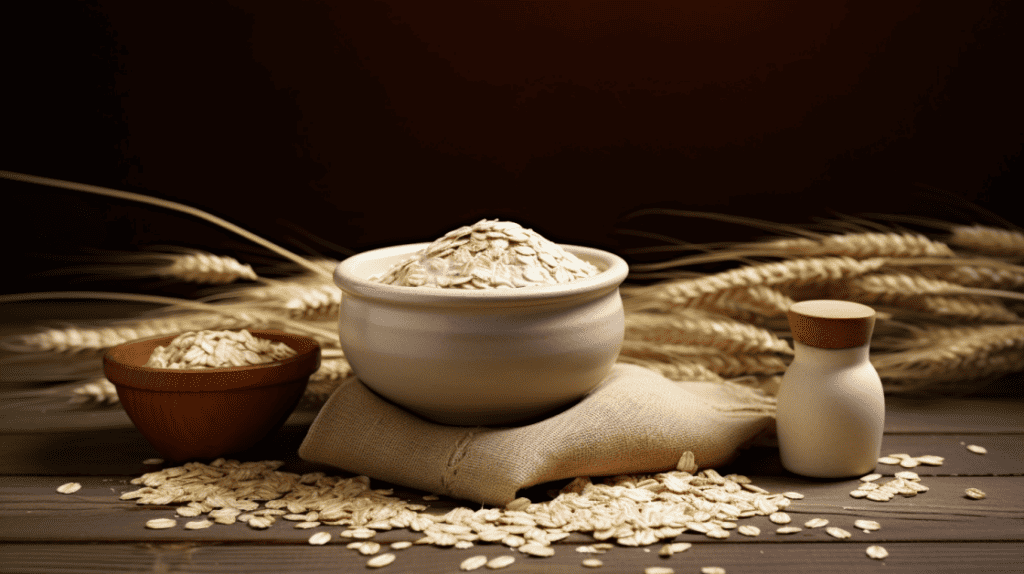
Maintaining a healthy diet is crucial in keeping your cholesterol levels in check. High cholesterol levels can lead to various heart diseases, so it is essential to keep them under control. A low-cholesterol diet can help you lose weight, improve your heart health, and lower LDL cholesterol levels.
Including whole-grain oats in your diet is one of the best ways to lower your cholesterol levels. Oats are rich in soluble fiber, which helps reduce the absorption of cholesterol into your bloodstream. Several studies have shown that consuming oats regularly can lower your LDL cholesterol levels by up to 10%.
Apart from oats, including other high-fiber foods like kidney beans, Brussels sprouts, apples, and pears can also help lower your cholesterol levels. A diet rich in fruits, vegetables, and whole grains can provide you with the necessary nutrients and fiber to keep your heart healthy.
It is also essential to limit your intake of saturated and trans fats, which can raise your cholesterol levels. Foods like red meat, butter, cheese, and fried foods are high in saturated and trans fats and should be consumed in moderation.
In conclusion, a healthy diet plays a vital role in lowering your cholesterol levels and maintaining your heart health. Including high-fiber foods like oats, fruits, and vegetables and limiting your intake of saturated and trans fats can help you achieve your cholesterol goals.
Oatmeal and Cholesterol

If you’re looking for a healthy breakfast option that can help lower your cholesterol levels, oatmeal is a great choice. Oats are known to be the best whole grain for lowering LDL cholesterol numbers, which is the “bad” cholesterol that can increase your risk of heart disease.
Oatmeal contains soluble fiber, which can help reduce the absorption of cholesterol into your bloodstream. According to the U.S. Food and Drug Administration, consuming 3 grams of soluble fiber from oatmeal daily can help lower your cholesterol levels.
Beta-glucan is a type of fiber found in oats that has been shown to have health benefits. It can help combat obesity and metabolic syndrome and may even boost milk production in breastfeeding women.
When it comes to choosing the best oatmeal brand to lower your cholesterol levels, it’s important to opt for whole-grain oats. Instant oatmeal and quick-cooking oats may be convenient, but they often contain added sugars and preservatives. Old-fashioned oats or oat groats are a better choice as they are less processed and contain more fiber.
In summary, incorporating oatmeal into your breakfast routine can help lower your cholesterol levels and provide other health benefits. Opt for whole-grain oats and enjoy the benefits of this delicious and nutritious breakfast option.
Types of Oats
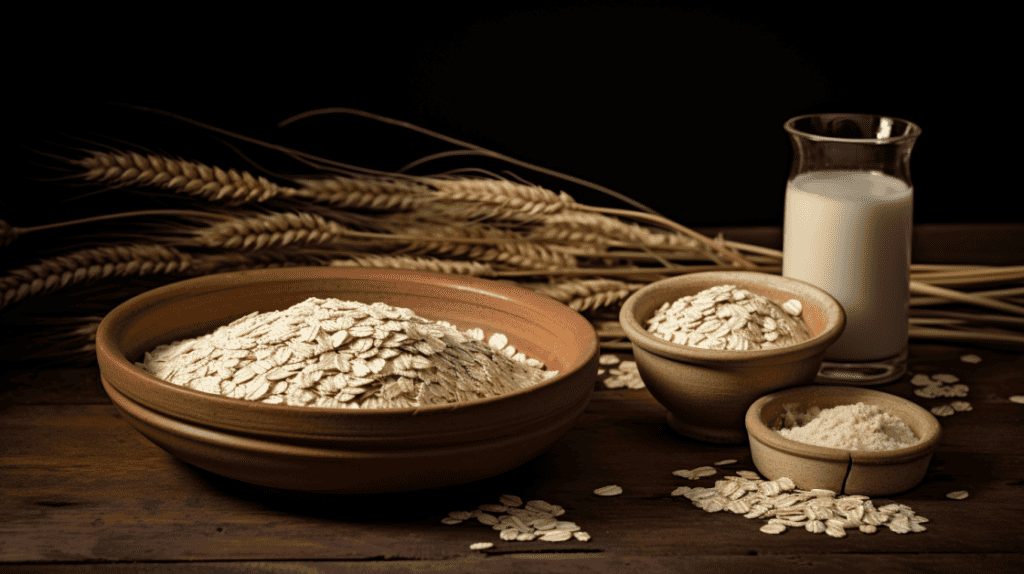
When it comes to choosing the best oatmeal brand to help lower your cholesterol, it’s important to understand the different types of oats available.
Here are some of the most common types of oats you’ll find at the grocery store:
Steel-Cut Oats
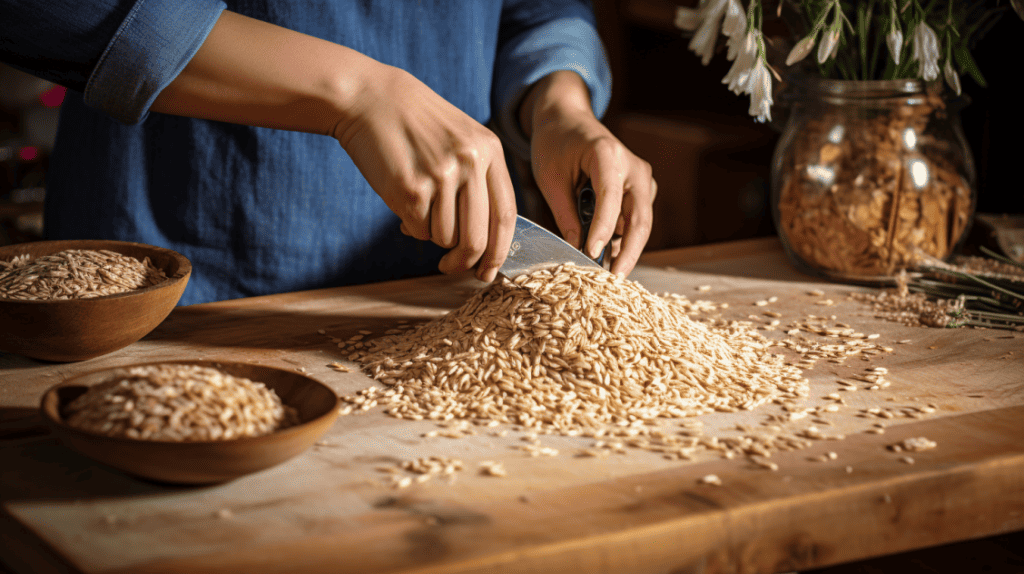
Steel-cut oats are made by cutting whole oat groats into smaller pieces with steel blades. They have a chewy texture and nutty flavour, and are often considered the healthiest type of oatmeal due to their high fibre content. They also have a low glycemic index, which means they won’t cause a spike in your blood sugar levels.
To prepare steel-cut oats, you’ll need to simmer them in water or milk for about 20-30 minutes. This can be time-consuming, but many people find the flavour and texture of steel-cut oats to be worth the extra effort.
Rolled Oats

Rolled oats, also known as old-fashioned oats, are made by steaming and then flattening whole oat groats with large rollers. They have a softer texture than steel-cut oats and cook more quickly, making them a popular choice for busy mornings.
Rolled oats are also high in fibre and have a lower glycemic index than many other breakfast cereals. They can be cooked in the microwave or on the stove with water or milk.
Oat Bran

Oat bran is the outer layer of the oat groat and is often sold as a separate product. It’s a good source of soluble fibre, which can help to lower cholesterol levels. Oat bran can be added to smoothies, baked goods, or sprinkled on top of cereal or yogurt.
Whole Grain Oats

Whole grain oats are simply oats that have not been processed or refined. They include steel-cut oats, rolled oats, and oat groats. Whole grains are a good source of fibre, vitamins, and minerals, and can help to lower cholesterol levels.
When choosing an oatmeal brand, look for products that are made with whole grain oats and have minimal added sugars or artificial ingredients. You can also add your own flavourings, such as fruit, nuts, or honey, to customize your oatmeal to your taste.
The Nutritional Composition of Oatmeal

Oatmeal is a nutritious breakfast option that is known to help lower cholesterol levels. It is a good source of several essential nutrients, including fiber, protein, and antioxidants.
Here is a breakdown of the nutritional composition of oatmeal:
Fiber

Oatmeal is high in fiber, which is essential for maintaining good digestive health. It contains both soluble and insoluble fiber, with the former being particularly beneficial for reducing cholesterol levels. Soluble fiber forms a gel-like substance in the gut that binds to cholesterol and prevents it from being absorbed into the bloodstream.
Fat
Oatmeal is a low-fat food, with most of the fat coming from healthy unsaturated fats. It contains very little saturated fat, which is known to raise cholesterol levels and increase the risk of heart disease.
Sugar
Oatmeal is naturally low in sugar, with most of the sweetness coming from complex carbohydrates. Avoid flavored oatmeal products that contain added sugars, as these can negate the health benefits of oatmeal.
Protein
Oatmeal is a good source of plant-based protein, which is essential for building and repairing tissues in the body. It contains all nine essential amino acids, making it a complete protein source.
Antioxidants
Oatmeal contains several antioxidants, including avenanthramides, which are unique to oats. These compounds have been shown to reduce inflammation and protect against oxidative stress, which can damage cells and contribute to chronic diseases.
Omega-3 Fatty Acids
Oatmeal is not a significant source of omega-3 fatty acids, but it does contain small amounts of alpha-linolenic acid (ALA), which is a precursor to the more potent omega-3s found in fatty fish.
Dietary Fiber
Oatmeal is a good source of dietary fiber, which is important for maintaining healthy digestion and reducing the risk of chronic diseases such as heart disease, diabetes, and cancer.
In summary, oatmeal is a nutritious breakfast option that is high in fiber, low in fat and sugar, and contains several essential nutrients and antioxidants. Incorporating oatmeal into your diet can help lower cholesterol levels and improve overall health.
Enhancing the Health Benefits of Oatmeal
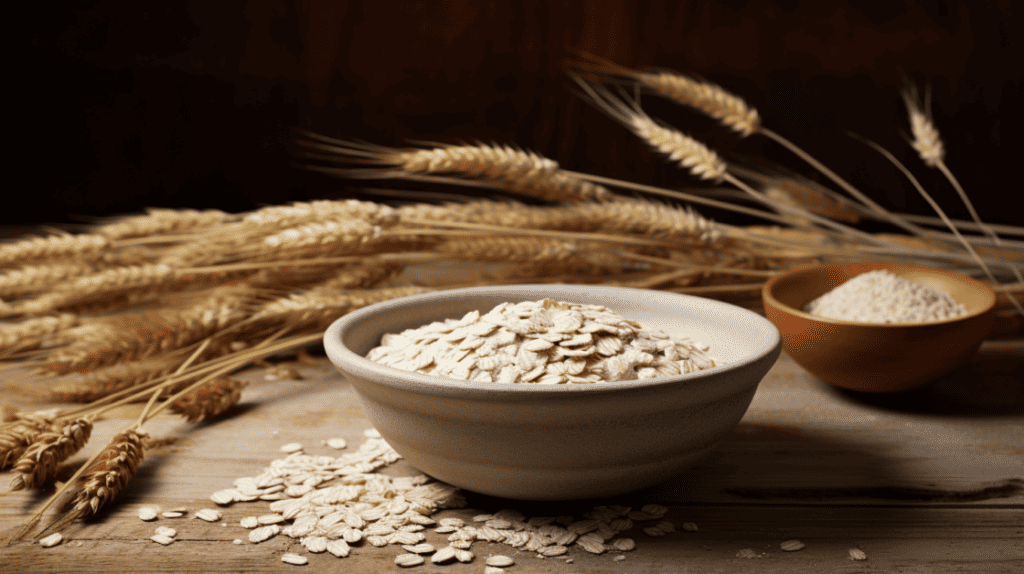
Oatmeal is a delicious and nutritious breakfast option that can help lower cholesterol levels and reduce the risk of heart disease. However, you can enhance the health benefits of oatmeal by adding certain foods to your bowl.
Here are some suggestions:
- Fruit: Adding fruit to your oatmeal can increase the fiber and vitamin content of your breakfast. Some great options include sliced apples, berries, pears, and bananas.
- Milk: Using milk instead of water to cook your oatmeal can add protein and calcium to your meal. You can use cow’s milk, plant-based milk such as almond or oat milk, or soy milk.
- Nuts and seeds: Adding nuts and seeds to your oatmeal can increase the protein and healthy fat content of your breakfast. Some good options include walnuts, ground flax seeds, and chia seeds.
- Vegetables: Adding vegetables to your oatmeal might sound unusual, but it can be a great way to increase your daily vegetable intake. Try adding grated zucchini or carrot to your oatmeal and top with a fried egg for a savoury breakfast option.
- Cinnamon: Sprinkling cinnamon on your oatmeal can add flavour and may help regulate blood sugar levels.
- Avocado: Adding mashed avocado to your oatmeal can add healthy fats and creaminess to your breakfast.
- Omega-3 fats: Adding foods high in omega-3 fats, such as flax seeds or chia seeds, can help reduce inflammation and improve heart health.
By adding these foods to your oatmeal, you can enhance the health benefits of your breakfast and start your day off on the right foot.
The Impact of Oatmeal on Heart Health
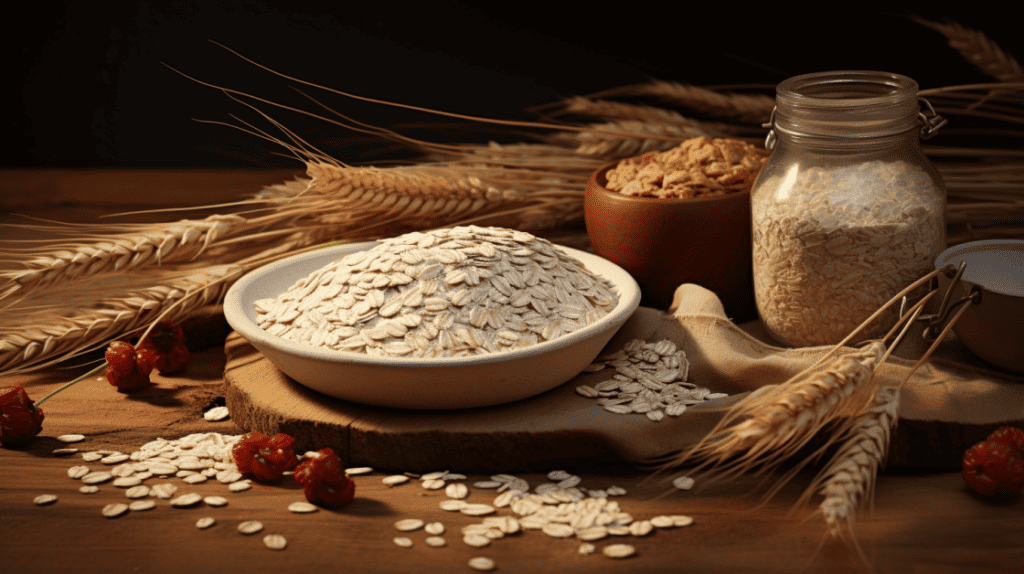
If you’re looking for a heart-healthy breakfast option, oatmeal is a great choice. Oats contain a type of soluble fiber called beta-glucan, which has been shown to lower both blood glucose and cholesterol levels. This can help reduce your risk of heart disease and diabetes.
According to a study published in the American Journal of Clinical Nutrition, whole-grain oats are the best whole grain for lowering LDL cholesterol numbers. Steel-cut oats, in particular, are high in soluble fiber and can help to lower cholesterol.
In addition to its cholesterol-lowering benefits, oatmeal is also a good source of healthy fats. These healthy fats can help to reduce inflammation and improve heart health.
When choosing an oatmeal brand, look for options that are low in added sugars and high in fiber. Some of the best oatmeal brands for heart health include Purely Elizabeth, which offers oat cups with superfoods and collagen, and Quaker Oats, which has a variety of flavors and options including steel-cut oats.
Incorporating oatmeal into your breakfast routine is a simple and delicious way to improve your heart health. Try topping your oatmeal with fresh fruit, nuts, or a drizzle of honey for added flavor and nutrition.
Practical Tips for Including Oatmeal in Your Diet
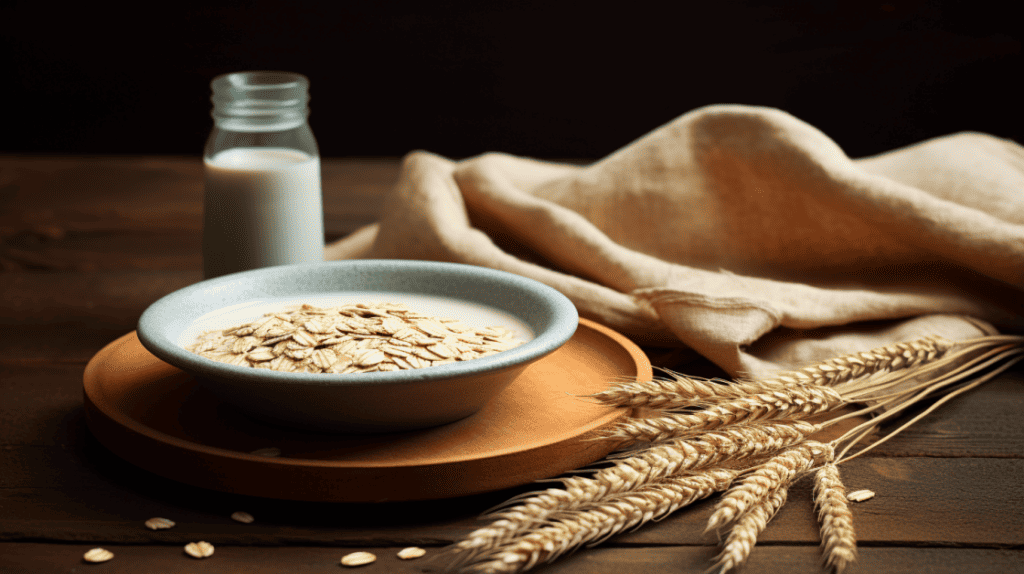
Oatmeal is a versatile food that can be included in a variety of dishes.
Here are some practical tips for including oatmeal in your diet:
Meal Prep
Preparing oatmeal in advance can save time and make it easier to include in your diet. Consider making a large batch of oatmeal and storing it in the fridge or freezer. You can then reheat it in the microwave or on the stove for a quick and easy breakfast.
Microwave
If you’re short on time, microwave oatmeal is a quick and easy option. Simply add oats and water to a microwave-safe bowl and microwave for 1-2 minutes. You can then add your favourite toppings for a delicious and nutritious breakfast.
Oatmeal Combinations
Oatmeal can be combined with a variety of ingredients to create a delicious and nutritious meal. Consider adding fruit, nuts, seeds, or spices to your oatmeal for added flavour and nutrition.
Cold Cereal
Oatmeal can also be enjoyed as a cold cereal. Simply mix oats with milk or yogurt and add your favourite toppings. This is a great option for hot summer days when you don’t feel like eating a hot breakfast.
Soups and Casseroles
Oatmeal can be added to soups and casseroles to add nutrition and thickness. Consider adding oats to your favourite soup or casserole recipe for added texture and flavour.
Baked Goods
Oatmeal can also be added to baked goods for added nutrition and texture. Consider adding oats to your favourite muffin, cookie, or bread recipe for added flavour and nutrition.
Cozy Oatmeal Recipes
Oatmeal is a great comfort food that can be enjoyed on a cold winter day. Consider trying out some cozy oatmeal recipes, such as oatmeal with cinnamon and brown sugar, or oatmeal with apples and maple syrup.
Perfect Oatmeal
To make the perfect oatmeal, use a 2:1 ratio of liquid to oats. Bring the liquid to a boil, add the oats, and reduce heat to a simmer. Cook for 5-10 minutes, stirring occasionally, until the oats are tender and the liquid has been absorbed.
Processed Foods
Be aware of processed oatmeal products, such as instant oatmeal packets, which can be high in sugar and additives. Opt for plain oats and add your own toppings for a healthier option.
Beans
Consider adding beans to your oatmeal for added nutrition and protein. This may sound unusual, but it can be a delicious and nutritious option. Try adding black beans and salsa to your oatmeal for a Mexican-inspired breakfast.
Incorporating oatmeal into your diet is a simple and delicious way to improve your health. Try out these practical tips and experiment with different oatmeal combinations to find your favourite way to enjoy this nutritious food.
Expert Opinions on Oatmeal and Cholesterol
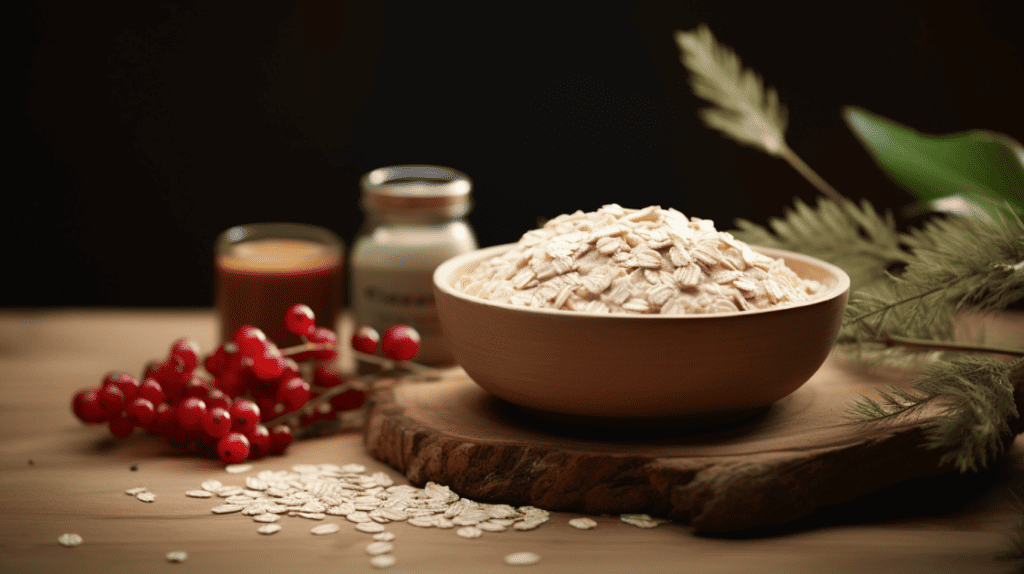
If you’re looking for a healthy breakfast option that can help lower your cholesterol levels, oatmeal is a great choice. But what do the experts have to say about it?
According to registered dietitian nutritionists (RDNs), oatmeal is a great choice for anyone looking to lower their cholesterol levels. It’s a whole grain that’s high in soluble fibre, which can help reduce LDL or “bad” cholesterol levels in the blood.
Harvard Health also recommends oatmeal as a cholesterol-lowering food. They suggest choosing plain, unsweetened oatmeal and adding your own healthy toppings, such as fresh fruit, nuts, and seeds.
Adults of all ages can benefit from incorporating oatmeal into their diet. It’s an easy and affordable way to promote heart health and reduce the risk of cardiovascular disease.
Nutritionists also recommend oatmeal as a good option for people with hypothyroidism, a condition that can cause high cholesterol levels. Oatmeal is a low-glycemic food that won’t cause blood sugar spikes, making it a good choice for people with this condition.
The Mayo Clinic also recommends oatmeal as a top food for improving cholesterol levels. They suggest choosing whole-grain oats and incorporating them into your diet in a variety of ways, such as in oatmeal, granola, and baked goods.
Overall, the experts agree that oatmeal is a great choice for anyone looking to lower their cholesterol levels and promote heart health. So go ahead and stock up on this cholesterol-fighting powerhouse during your next grocery run!
Reading and Understanding Oatmeal Labels
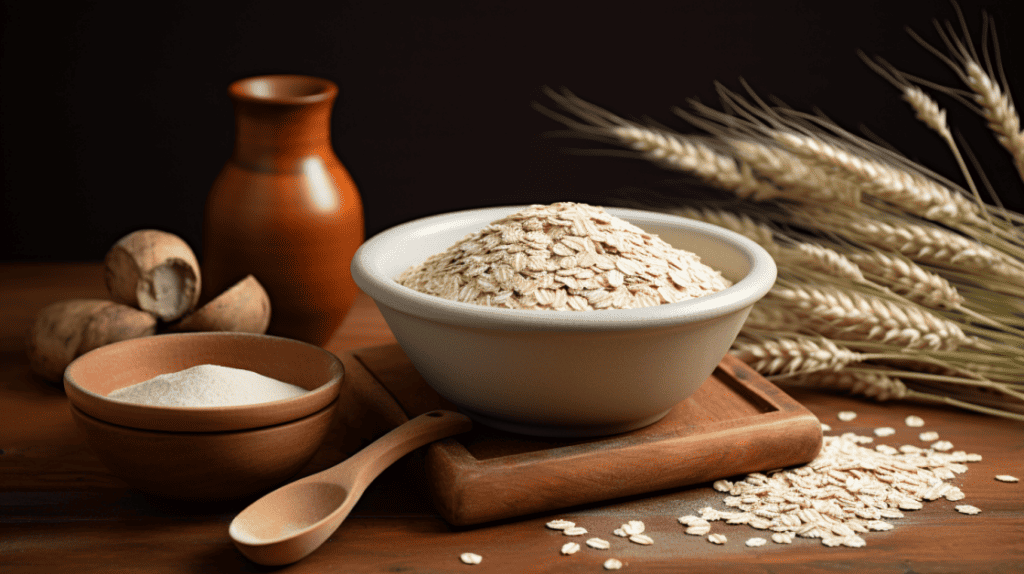
When it comes to choosing the best oatmeal brand to lower your cholesterol, reading and understanding the oatmeal labels is crucial.
Here are some tips to help you make an informed decision:
Look for Low Sugar Content
Added sugar can be a major contributor to heart disease, so it’s important to choose an oatmeal brand that is low in sugar. Check the label for the amount of added sugar per serving. Ideally, you should aim for a brand that has no more than 5 grams of added sugar per serving.
Watch Out for Saturated Fat
Saturated fat can raise your cholesterol levels and increase your risk of heart disease. When choosing an oatmeal brand, look for one that is low in saturated fat. Aim for a brand that has no more than 2 grams of saturated fat per serving.
Consider Adding Low-Fat Milk
If you’re looking to lower your cholesterol, consider adding low-fat milk to your oatmeal. Low-fat milk can help to reduce your cholesterol levels, as it contains a type of protein that binds to cholesterol and helps to remove it from your body.
Check the Label for Blood Sugar Levels
If you have diabetes or are at risk of developing diabetes, it’s important to choose an oatmeal brand that won’t cause a spike in your blood sugar levels. Look for a brand that has a low glycemic index (GI) score. A low GI score means that the oatmeal will be absorbed more slowly by your body, which can help to keep your blood sugar levels stable.
In conclusion, when choosing the best oatmeal brand to lower your cholesterol, it’s important to read and understand the oatmeal labels. Look for brands that are low in added sugar and saturated fat, consider adding low-fat milk, and check the label for blood sugar levels if you have diabetes or are at risk of developing it.
Frequently Asked Questions
What are some of the best whole grain oatmeal brands for reducing cholesterol?
When it comes to choosing the best oatmeal brand for reducing cholesterol, it is important to look for whole grain options. Some of the best brands to consider include Quaker Oats, Bob’s Red Mill, and McCann’s Irish Oatmeal. These brands offer a variety of options, including steel cut, rolled, and instant oats.
What fruits should I include in my diet to help lower my cholesterol?
Fruits are an important part of a healthy diet, especially when it comes to lowering cholesterol. Some of the best fruits to include in your diet include apples, berries, citrus fruits, and bananas. These fruits are high in fiber, which can help to lower cholesterol levels.
What are some low cholesterol oatmeal recipes that I can try?
There are many delicious and healthy oatmeal recipes that can help to lower cholesterol levels. Some ideas include adding fresh fruit and nuts to your oatmeal, making overnight oats with almond milk, or adding cinnamon and honey for a touch of sweetness.
Is instant oatmeal as effective as traditional oatmeal for lowering cholesterol?
While instant oatmeal is a convenient option, it may not be as effective as traditional oatmeal for lowering cholesterol. Traditional oatmeal, such as steel cut or rolled oats, contains more fiber and less sugar than instant oatmeal. However, if you choose an instant oatmeal that is low in sugar and high in fiber, it can still be a healthy choice.
Which type of oats is recommended for a low cholesterol diet – steel cut or rolled oats?
Both steel cut and rolled oats are good options for a low cholesterol diet. Steel cut oats are less processed and have a slightly lower glycemic index than rolled oats. Rolled oats, on the other hand, are more widely available and cook faster than steel cut oats. Ultimately, the choice between the two comes down to personal preference.
Can eating a diet rich in beans help to lower my cholesterol levels?
Yes, eating a diet rich in beans can help to lower cholesterol levels. Beans are high in fiber, which can help to reduce the absorption of cholesterol in the body. Some of the best beans to include in your diet include black beans, kidney beans, and chickpeas.




